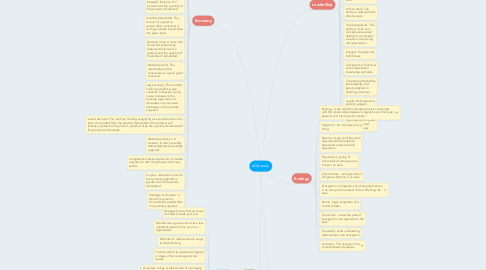eGlossary
by Hassan Abdul


1. Unit two
1.1. Brand: a type of product manufactured by a particular company under a particular name
1.2. Consultancy: a professional practice that gives expert advice within a particular field
1.3. Politicians: a person who is professionally involved in politics, especially as a holder of an elected office
1.4. Product: an article or substance that is manufactured or refined for sale
1.5. Distinctive: characteristic of one person or thing, and so serving to distinguish it from others
1.6. Athletes: a person who is proficient in sports and other forms of physical exercise
1.7. Develop: grow or cause to grow and become more mature, advanced, or elaborate
1.8. Preferred: like (one thing or person) better than another or others; tend to choose
1.9. Manufacturers: a person or company that makes goods for sale
2. Economy
2.1. Scarcity The situation in which unlimited wants exceed the limited resources available to fulfill those wants.
2.2. Economics The study of the choices people make to attain their goals, given their scarce resources.
2.3. Economic model A simplified version of reality used to analyze real-world economic situations.
2.4. Trade-off The idea that because of scarcity, producing more of one good or service means producing less of another good or service.
2.5. Opportunity cost The highest-valued alternative that must be given up to engage in an activity.
2.6. Microeconomics The study of how households and firms make choices, how they interact in markets, and how the government attempts to influence their choices.
2.7. Macroeconomics The study of the economy as a whole, including topics such as inflation, unemployment, and economic growth.
2.8. Demand schedule A table showing the relationship between the price of a product and the quantity of the product demanded.
2.9. Quantity demanded The amount of a good or service that a consumer is willing and able to purchase at a given price.
2.10. Demand curve A curve that shows the relationship between the price of a product and the quantity of the product demanded.
2.11. Market demand The demand by all the consumers of a given good or service.
2.12. Law of supply The rule that, holding everything else constant, increases in price cause increases in the quantity supplied, and decreases in price cause decreases in the quantity supplied
2.13. Law of demand The rule that, holding everything else constant, when the price of a product falls, the quantity demanded of the product will increase, and when the price of a product rises, the quantity demanded of the product will decrease.
2.14. Market equilibrium A situation in which quantity demanded equals quantity supplied.
2.15. Competitive market equilibrium A market equilibrium with many buyers and many sellers.
2.16. Surplus A situation in which the quantity supplied is greater than the quantity demanded.
2.17. Shortage A situation in which the quantity demanded is greater than the quantity supplied.
3. English
3.1. Unit one
3.1.1. Resigned: to say that you have decided to leave your job
3.1.2. Subordinate: a person who has a less important position than you in an organization
3.1.3. Motivate: to make someone eager to do something
3.1.4. To what extent: to a particular degree or stage, often causing particular results.
3.1.5. Acquired: to buy or take control of a company or part of a company, often by buying shares in it
3.1.6. Co-found: to start an organization together with someone else
3.1.7. Fired: kick out
3.1.8. Morale: the level of satisfaction felt by a person or group of people who work together
3.1.9. Accomplish: to finish something successfully or to achieve something
3.1.10. Innovation: the use of a new idea or method
